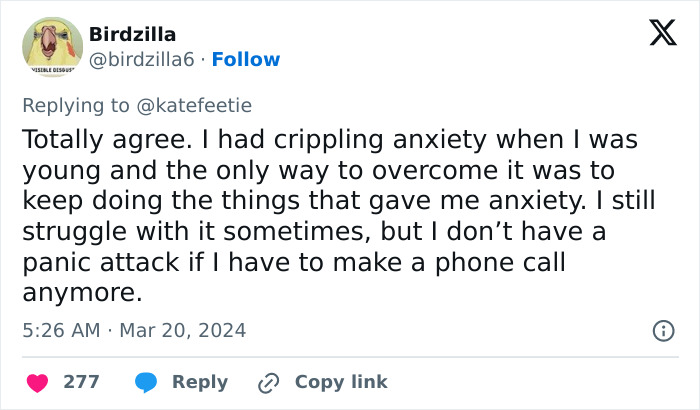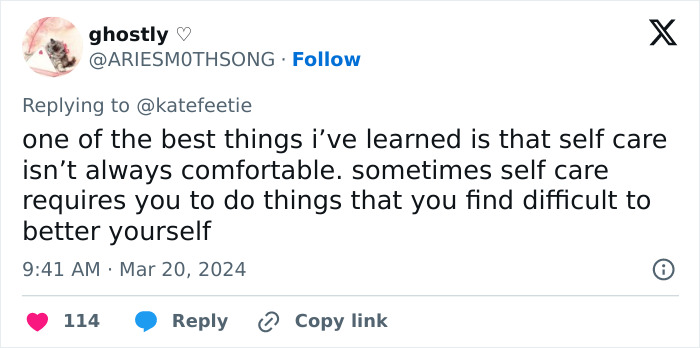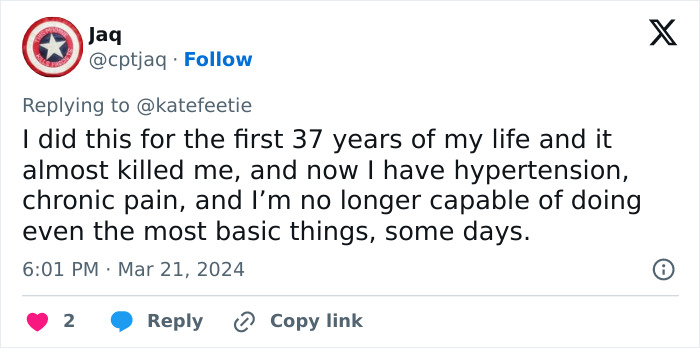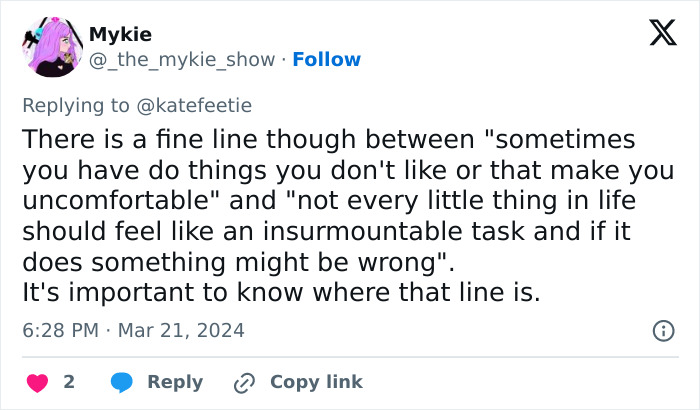Typically, young people think of the boomer generation’s (people born around 1946-1964) opinions as outdated. Yet, sometimes, they secretly find themselves agreeing with some. Or, maybe not so secretly, as they post about it on social media.
Today, we are talking about one of these cases, which caused quite a discussion on X, even though, technically, it’s just another debate about the comfort zone.
More info: X
Even though sometimes the boomer generation’s opinions tend to be outdated, from time to time, we can find some that are valid

One such opinion was shared by an X user, who stated that people should push themselves to do uncomfortable things, as it trains them to not view these things this way
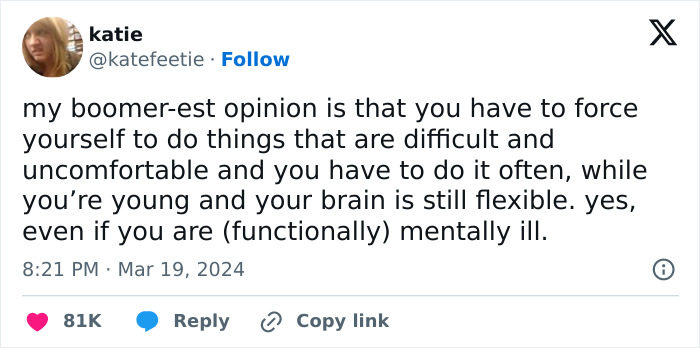

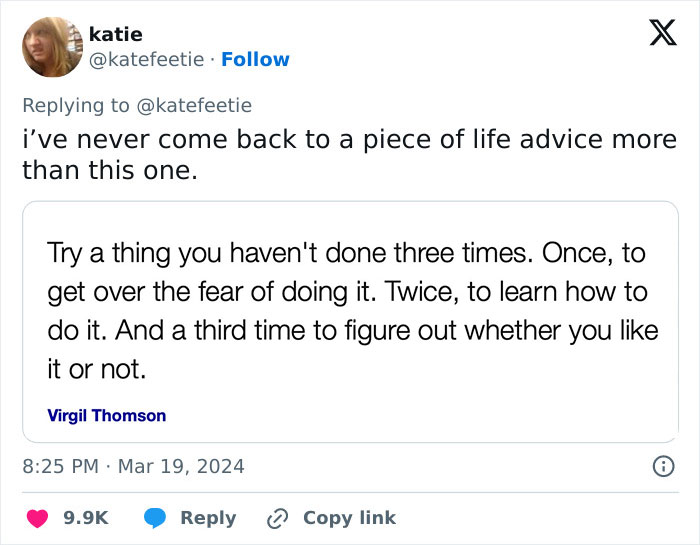
On March 19th, 2024, writer @katefeetie tweeted her “boomer-est” opinion: that people must force themselves to do things that are uncomfortable while they’re young and their brain is flexible, even if they’re mentally ill, as pushing themselves to do them might make them less uncomfortable after several tries. Basically, it’s about an old tale of “stepping out of the comfort zone.” The tweet quickly went pretty viral, as X users found it quite polarizing.
Some people completely agreed with the sentiment. In fact, some of them said that this kind of thought, or, to be more precise, the act of pushing themselves to do something uncomfortable, forced them to heal their social anxiety or forced their brain to function with their ADHD.
In fact, the act of leaving your comfort zone has quite a few benefits – it helps people achieve their goals, boosts self-confidence, and expands their worldview, to name a few.
But there’s another side of things, which was pointed out by people who disagreed with the idea expressed in the tweet. Some noted that leaving the comfort zone must be done only when the person feels safe or healthy enough to do so. As one person put it: “Pushing yourself to wash dishes is healthy, while staying in a toxic relationship isn’t.”
Others were a little bit more extreme. They said that such a take is ableist — discriminatory against people with disabilities. After all, sometimes, people have such debilitating mental conditions that they restrict people from doing certain things, including pushing their boundaries, even if they want to. If they try to push themselves to do something very difficult for them, it can lead to a panic attack or any other bad physical reaction, like vertigo.

So, you might wonder, which side is right? To help you make up your mind, Bored Panda reached out to transformational life coach Amy Lee (if you’re a newsletter fan, she has one that focuses on her personal stories and healing journey).
To understand whether pushing yourself to do something very uncomfortable and difficult is worth it, Amy advises you to think about what this push will bring you long-term. She also gave a perfect example: “I am terrified of public speaking, but I know my calling is to speak, so will taking occasional opportunities lead to sustainable growth and longevity? Yes! While there will most likely be a shock to my nervous system, eventually, with time, practicing public speaking will help to minimize that.”
Amy says that there are a few steps to understand what goals people have so they can start pushing themselves. The first step would be identifying limiting beliefs around the goals. For instance, a person wants to be an actor but believes they aren’t worthy of being successful. Then, it would be followed by finding the origins and reasoning: “Validation is integral to healing these beliefs.”
When the reasoning is understood, the reprogramming of the subconscious mind follows. This step involves affirmations, trauma work (talk therapy), scripting, visualizing, and somatic work (a therapy where the body is the main point for healing). Amy provides an example of the latter: “Perhaps you were booed on stage as a little kid — that trauma may reside in your stomach (constant nausea around the fear of being seen).”
Amy also highlighted that there are things that terrify people that they don’t have a calling for, which makes these things kind of purposeless.
So, as with many other things in life, this is something that has two sides, and both of them are valid. Training yourself by doing uncomfortable things is a very good tactic, as long as it doesn’t overly hurt the person (both physically and emotionally) and it serves some kind of purpose. Therefore, we can agree that, in a way, both sides of the debate were kind of right and wrong at the same time, can’t we?
The tweet sparked a debate, where some folks agreed with it, while others disagreed and even called it ableist


